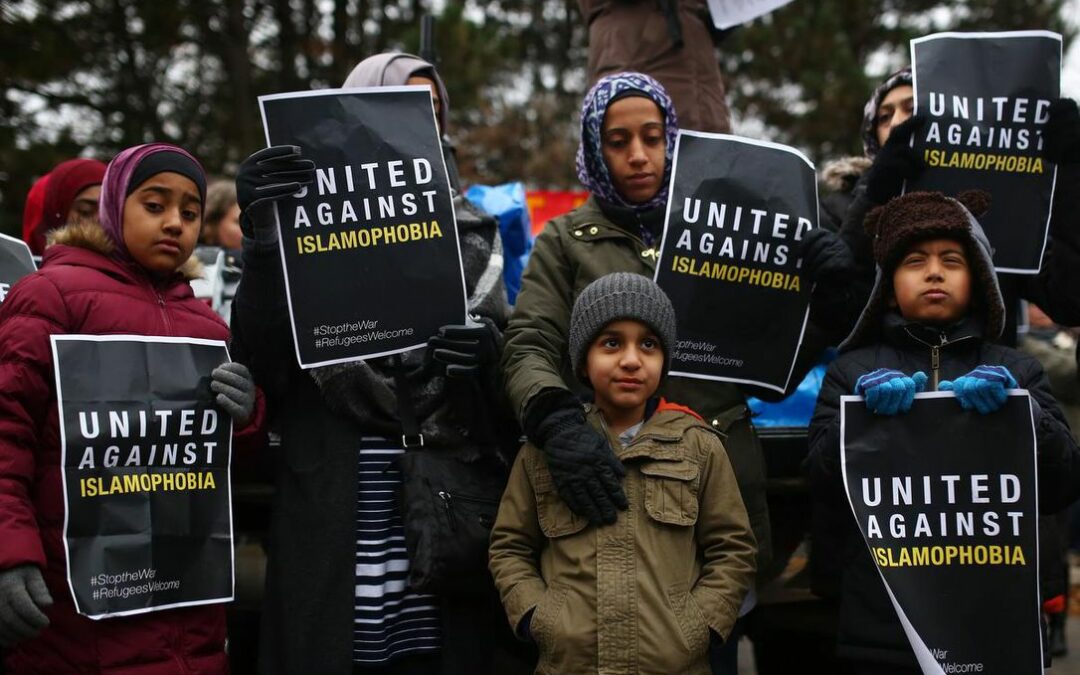This September marks the 20th anniversary of the horrific attack on the twin towers in New York City. Nearly 3,000 souls were lost, and the lives of tens of thousands of others were impacted in the subsequent so-called “war on terror.”
Canadian Muslims felt the negative reverberations as targets of state apparatus that fixated on members of our communities, often Muslim men, as potential threats. This led to increased scrutiny and over surveillance and constant vilification throughout parts of the media ecosystem and in political discourse.
During the rise and fall of the Islamic State, similar dynamics were at play: the constant news of atrocities committed by terrorists in the name of Islam and pinned on the backs of our communities was used to justify public safety measures that undermined civil liberties and undergirded policies and legislation vilifying our communities including the infamous Zero Tolerance for Barbaric Cultural Practices Act, Bill C-51, and attempts to ban the niqab from citizenship ceremonies.
In other words, a national summit on Islamophobia to confront and examine harmful treatment of Muslims in Canada has been over 20 years in the making. One day was never going to be enough to unpack it all, flesh out all the ways for governments to make amends, and hold them to it. Those who expected that are understandably disappointed.
Last Thursday’s summit was nevertheless successful in spurring dialogue and driving community consultations on a scale not previously seen, with dozens of roundtable, virtual meetings and hundreds of submissions from a long list of civil liberties organizations, mosque and community associations and groups.
Those consultations delivered a considerable body of work, spanning a swathe of issues as disparate as reining in systemic bias at the Canadian Revenue Agency, to promoting Muslim arts, to providing innovative solutions to addressing hate, and demonstrates a coming-of-age of sorts that bodes well for the future of civic engagement and political participation.
This was no easy feat, given how diverse Canadian Muslims are, representing a rainbow of ethnicities and cultures, varying religious practice and sect and running the full range of political opinion.
To be able to clearly articulate all that has gone wrong over the last 20 years, with suggested remedies, is itself a major win. Communities now have clear blueprints from which to demand action from all three levels of government.
Gauging the summit’s success then must not only focus on the end result, which included far too few promises by the federal government. Impact lies in the process that led to it and the steps that now follow. Much of that hinges on continued public pressure, including the steady engagement of Canadian Muslims and their allies around identified priorities.
This requires persistent community organizing to ensure that in every city and town, residents are talking to their local elected officials and authorities, working to advance change. Whether it’s pushing municipal councils to commit more funding towards anti-racism initiatives, or whether it’s asking the local MPP or MLA to mandate municipalities to pass bylaws on street harassment and establishing hate crimes accountability units, nothing will happen without community voices making their case.
Our communities have been building up this experience, often out of an urgent and reactive need to speak out against injustice. Just this past weekend, the Justice for Abdirahman coalition marked five years since the death of Abdirahman Abdi, a Somali Canadian man suffering from mental illness who died at the hands of police.
Composed of young activists, lawyers, public servants, health care workers, and others, the coalition galvanized thousands of people, generated public policy demands, and lobbied officials for institutional reform.
The challenge is sustaining such efforts and that’s no simple task when efforts are largely driven by volunteers with little funding or resources. But if our democracies are to thrive, it will take grassroots power to transform our societies into places where people like Abdi and the members of the Afzaal family would be safe and where countless others would be free of bias and discrimination in their everyday lives.
Amira Elghawaby is an Ottawa-based human rights advocate and a freelance contributing columnist for the Star. Follow her on Twitter: @AmiraElghawaby
Original Link: thestar.com/opinion/contributors/2021/07/27/a-one-day-summit-to-tackle-islamophobia-was-never-going-to-be-enough.html
